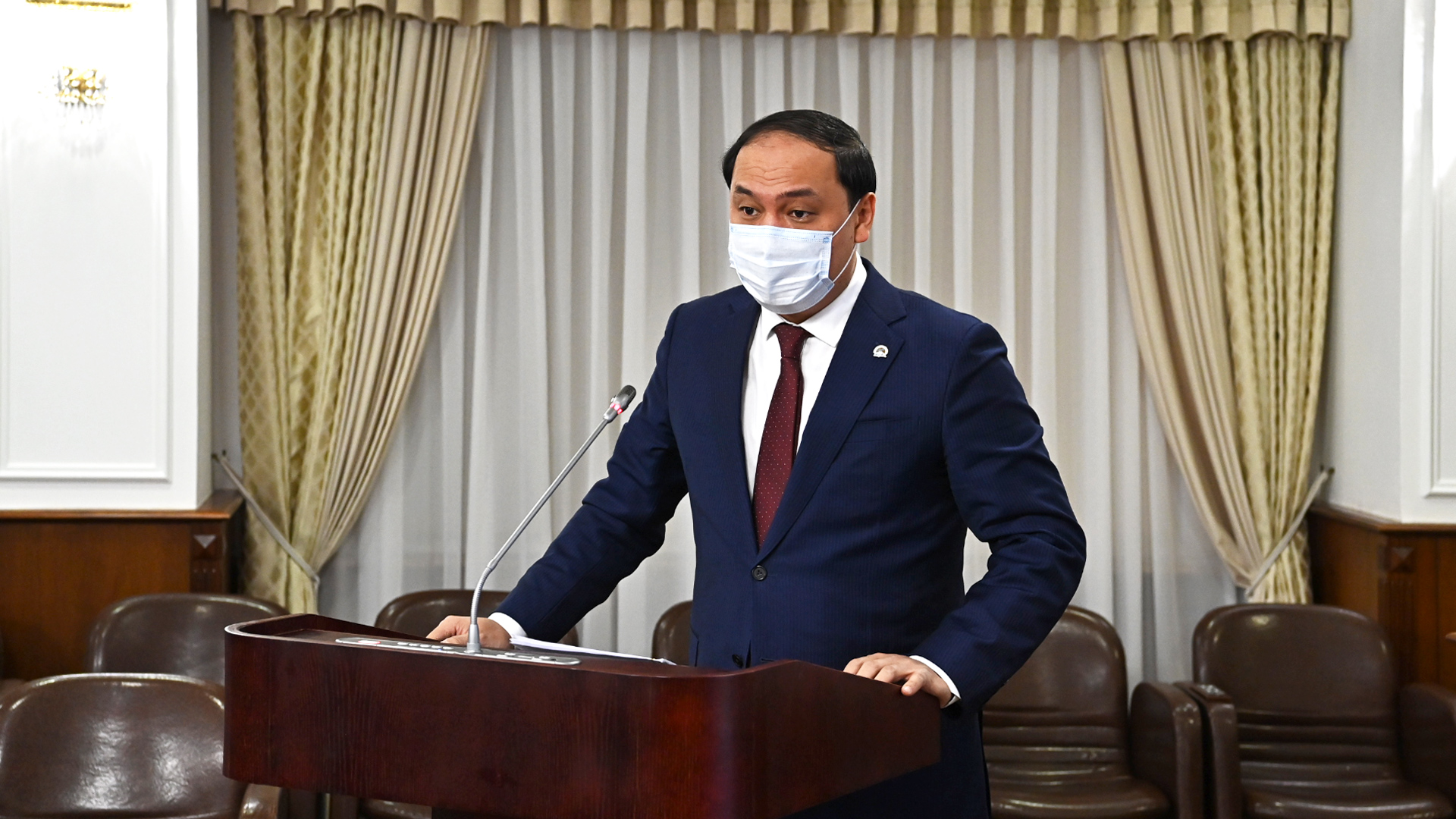12 January 2022, 13:28

Measures to implement the instructions of the President Kassym-Jomart Tokayev given on Jan. 11, 2022, during his speech in the Majilis of the Parliament were considered at the government session. Minister of Agriculture Yerbol Karashukeev spoke about the adoption of systemic measures in the agro-industrial complex of Kazakhstan.
According to the minister, on behalf of the Head of State, proposals have been prepared to adjust the system of state support for the industry, which will be aimed primarily at simplifying its mechanisms and optimizing directions, ensuring equal accessibility for all entities, regardless of the size and forms of management. A rule is also being introduced, according to which the recipients of the subsidy will without fail accept counter obligations to achieve specific indicative indicators.
“The proposals are currently being considered by the established working group to improve the efficiency of state support for the agro-industrial complex, which includes representatives of industry associations and unions, agribusiness, science, interested state and local executive bodies, as well as deputies of the Senate and Majilis of the Parliament of the Republic of Kazakhstan. At present, three meetings of the working group have taken place,” said Karashukeev.
As a result of the working groups, a large number of proposals and comments on the new system of subsidizing the agro-industrial complex were received from regions, industry unions and associations, members of the working group, which are systematized and, if justified, will be taken into account when finalizing the subsidy system.
Based on the results of the working groups in March 2022, the final package of changes to improve the subsidy system is planned to be submitted to the Government for consideration.
In addition, the ministry has developed a unified integrated state information system for subsidies. Information system services for recipients of subsidies will be free of charge. Currently, we are launching its testing in a pilot mode in the Akmola region.
As the minister noted, in order to systematically address the issue of feed availability, a Roadmap for the development of the feed production industry for 2022-2025 has been developed and is being implemented. As part of the Roadmap, in order to address the issue of forage availability and leveling the negative impact of weather factors on agricultural production, it is envisaged to ensure real diversification in agriculture.
“In order to carry out the spring field work of the current year in a timely and high-quality manner, the ministry is taking all necessary measures. An Operational Headquarters has been set up in the ministry to coordinate work on conducting spring sowing in the regions. To carry out activities to support the subjects of the agro-industrial complex, concessional lending to agricultural producers will be provided through the Ken Dal program in the amount of 70 billion tenge and the forward purchase of the Food Corporation — 80 billion tenge,” said Karashukeev.
Last year's drought, as well as a sharp rise in prices for spare parts, fuels and lubricants, mineral fertilizers and pesticides create serious difficulties for the timely preparation and quality of the upcoming spring sowing.
“In this regard, in order to support farmers, we ask you to consider the possibility of increasing the budget loan for spring field work when clarifying the republican budget. Issues are being resolved to provide agricultural producers with cheaper diesel fuel for spring field work in the amount of at least 380 thousand tons at a price 15% lower than the market price. An agreement was reached with domestic producers of mineral fertilizers to fully meet the needs of farmers. 70 billion tenge is provided for subsidizing the purchase of seeds, fertilizers and pesticides in 2022,” the minister informed.
In the regions, in 2022 it is planned to place crops on an area of 22.9 million hectares, which is 13.5 thousand hectares more than in 2021.
“Akimats of the regions need to take maximum measures to preserve and carefully use the available moisture reserves through compliance with agricultural technologies, expanding the use of moisture-saving technology with mandatory compliance with the criteria for their use. In general, preparations for spring field work are proceeding as planned,” the minister said.
On behalf of the Head of State, in order to stabilize prices for socially significant food products, a set of measures for import substitution is provided within the framework of the National Project for the Development of the Agro-Industrial Complex until 2025.
The ministry has taken prompt measures to introduce:
Also, in order to stabilize bread prices, since January, subsidies have been introduced for the cost of grain sold by NC Food Corporation JSC to the regions for the production of social bread. The mechanism provides for reimbursement of expenses of the Food Corporation when selling grain to the domestic market below the market price.
Stay updated about the events of the Prime Minister and the Government of Kazakhstan - subscribe to the official Telegram channel
Subscribe